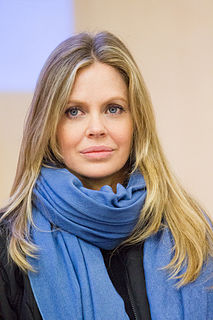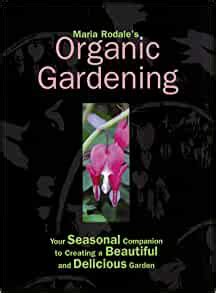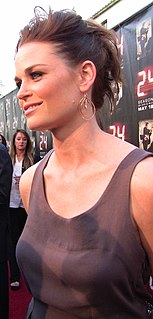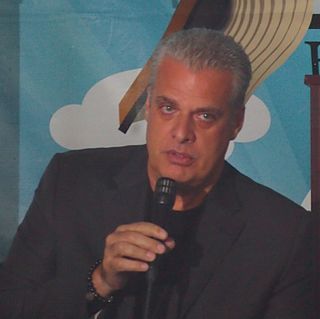A Quote by Tatiana Schlossberg
Consumers can choose organic cotton grown without pesticides, but it uses more water and requires more land than conventional crops. Organic cotton can also be much more expensive and difficult to find.
Related Quotes
There's a lot of research that suggests that organic yields are close or superior to conventional yields depending on factors like climate. In a drought year an organic field of corn will yield more - considerably more - than a conventional field; organic fields hold moisture better so they don't need as much water. It simply isn't true that organic yields are lower than conventional yields.
I can tell you what I am working on, which is being more cognizant of my actions and how they affect others, most I will never meet. I've begun with my purchases. I'm focusing on quality versus quantity - a nicer tee-shirt with organic cotton and buying just one or two instead of five that are cheaper but made with GMO cotton, which is hard on Earth. It's caring a little more beyond myself. And I think it may be our only hope - and it feels much better to my soul, which in the end may be all we have.
Organic is something we can all partake of and benefit from. When we demand organic, we are demanding poison-free food. We are demanding clean air. We are demanding pure, fresh water. We are demanding soil that is free to do its job and seeds that are free of toxins. We are demanding that our children be protected from harm. We all need to bite the bullet and do what needs to be done—buy organic whenever we can, insist on organic, fight for organic and work to make it the norm. We must make organic the conventional choice and not the exception available only to the rich and educated.
Golf has an ambivalent relationship with the environment. On one hand, it's a great preserver of open spaces. Golf doesn't pave the world - it helps to green the world. But the downside is, it uses a lot of fertilizer, pesticides and water. And this is in a world where we know that synthetic fertilizers and pesticides are toxic, and water is more and more scarce. Golf could do a lot more.
Since chemical fertilizer burns out the soil organic matter, other farmers struggle with tilth, water retention, and basic soil nutrients. The soil gets harder and harder every year as the chemicals burn out the organic matter, which gives the soil its sponginess. One pound of organic matter holds four pounds of water. The best drought protection any farmer can acquire is more soil organic matter.
I'm focusing on quality versus quantity - a nicer tee-shirt with organic cotton and buying just one or two instead of five that are cheaper but made with GMO cotton, which is hard on Earth, sewn by slave labor, shipped all the way from China on boats that use lots of oil and can kill whales with ship strikes and sold by (some) companies that could treat their






























